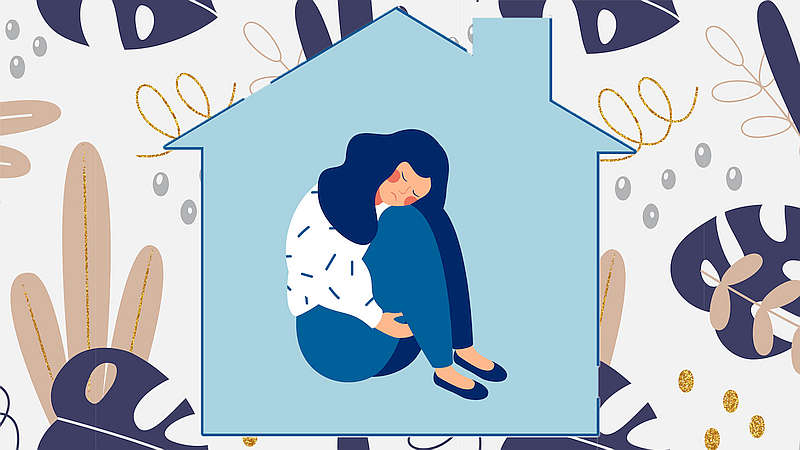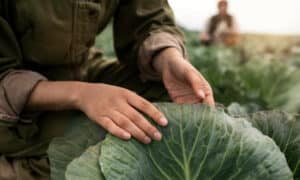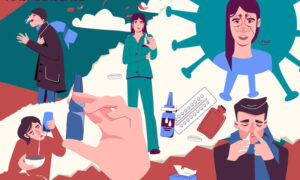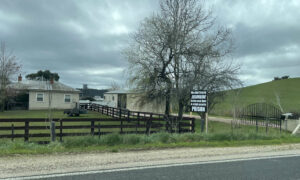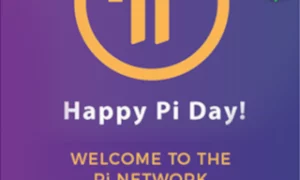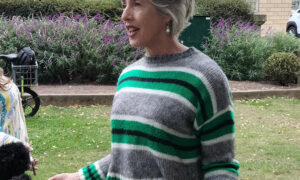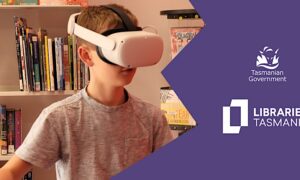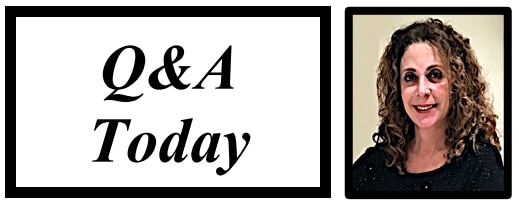
By Eileen S. Lenson, MSW, ACSW, BCC
Welcome to Q&A Today, a column designed to answer your questions regarding challenges and concerns in everyday life, from family to coping with current events. A popular topic today revolves around the coronavirus. All questions are fair game. Just send me an email with your questions or concerns, and watch for the answer in upcoming editions of the Tasmanian Times. Q&A Today is published on the first and third Sundays of the month. If your question is printed, only your first name will appear in this column. Email me at: [email protected].
Q: I live in Tasmania and my son and his family live in New Zealand. I haven’t seen them since the onset of this pandemic. I was hoping to fly overseas to see them next month, but my plans changed because of the increasing rates of infection from the Delta variant. Frustratingly, the green zone travel has been suspended, meaning that when returning to Tasmania I would have to complete 14 days of quarantine in government-designated accommodations. I can’t afford this expense and therefore will again have to delay meeting my first grandchild, who was born this past spring.
I’m feeling increasingly anxious and overwhelmed. It’s like this pandemic is slapping me in the face again and again. I don’t want to withdraw and become the recluse that I was when the pandemic began. How do I avoid slipping back into dwelling on angry and lonely feelings?
–Lucas
A: It is easy to see why you feel overwhelmed, and you’re certainly not alone in these feelings. We’re experiencing not one, but two pandemics: coronavirus and anxiety.
Coronavirus is unlike other tragic events. The initial crisis associated with earthquakes, fires and floods are all short-term events. But this virus just keeps continuing on and on with no clear end in sight in the near-term. It is human nature to desire predictability and to feel anxious when dealing with the unknown.
There is nothing wrong with feeling stressed or anxious. In fact, stress activates our defensive systems, helping us to get organised to focus on protecting ourselves when something terrible is about to happen. This can serve us well if we’re in the crosswalk and a large truck is barrelling down towards us. An anxious feeling will alert us to the immediate risk and help our bodies respond in a way that increases the likelihood of survival.
Yet we don’t want to allow our anxiety to overrun us. If the threat remains or continually reappears, then our body is not allowed to return to its normal mode of functioning, which can adversely impact our physical and mental well-being. The negative thought patterns that run through our head when we’re anxious tend to keep us focused on today’s woes, stifling our ability to think about the future. How is tomorrow going to be different from today if we don’t move beyond the stress and develop goals for our tomorrows?
The secret to controlling our anxiety is in our brains. The thinking part of our brain helps us to be mentally stronger. It helps us regulate our uncomfortable emotions so that fear, anger and loneliness don’t get the better of us. Using the thinking part of your brain, reflect on what you have learned about yourself this past year. The year may have felt horrible and disruptive, yet you probably discovered some healthy coping skills and found that you are more resilient than you perhaps thought.
Think about things within your control that you can do to help yourself relax and refocus, such as take breaks from reading, viewing television or having coronavirus related conversations, find a source of exercise or meditation that will provide you with the ability to relax, and most importantly in my opinion, remember that you’re practicing physical distancing from your loved ones, not social distancing.

Sometimes we can draw strength and insights from others who have had somewhat similar struggles. An example of this occurred following the 2011 Japanese earthquake, tsunami and nuclear meltdown. The country was so crippled by the disasters that rescue and relief teams could not reach many survivors, and for weeks traumatised survivors had to rely on support from strangers. The giving and receiving of emotional support and supplies from strangers helped their overall sense of well-being, increased their resilience and helped them more readily accept their losses.
The fact that you’re reaching out to me today reflects how you’re wisely using social connections to address your concerns rather than withdraw, as you did when the pandemic began. Keep moving forward in this productive manner, and please write back to me through this column to let the readers and me know how you’re doing.
In difficult times we often realise we are stronger than we thought!
– Best wishes, Eileen
Eileen S. Lenson, MSW, ACSW, BCC is author of Overcoming Adversity: Conquering Life’s Challenges, by Australian Academic Press. Eileen is a life and business coach and public speaker residing in the United States. She has spent her professional career working in medical and psychiatric hospitals and in her private practice, counselling people experiencing emotionally traumatic events. She can be reached at [email protected].
DISCLAIMER: By submitting a problem to Q&A Today you grant Tasmanian Times permission to publish it on our website and social media pages. Your full name and contact details will never be included or distributed. The advice columnist acting on behalf of Tasmanian Times is expressing personal opinions and views and the advice offered is intended for informational purposes only. Use of this column is not intended to replace or substitute for any professional, financial, medical, legal or other professional advice.
If you have specific concerns or a situation in which you require professional, psychological or medical help, you should consult with an appropriately trained and qualified specialist. The opinions or views expressed in this column are not intended to treat or diagnose; nor are they meant to replace the treatment and care that you may be receiving from a licensed professional, physician or mental health professional.
This column, its author and Tasmanian Times are not responsible for the outcome or results of following any advice in any given situation. You, and only you, are completely responsible for your actions.
Tasmanian Times reserves the right to edit problems/questions for length and clarity and offers no guarantee that any particular question will be responded to.
Previous columns by EILEEN LENSON: Q&A Today.

